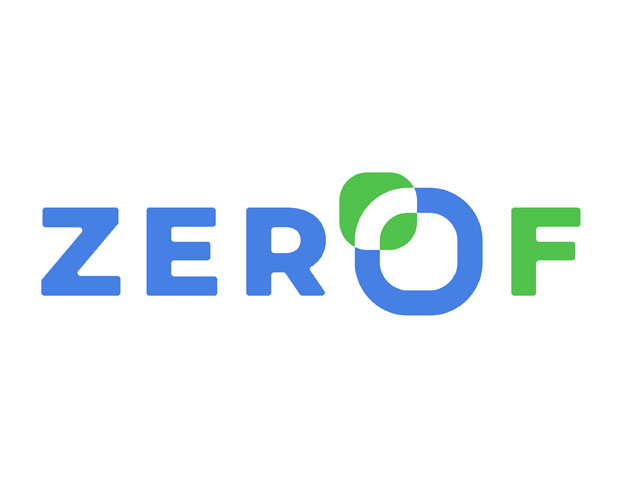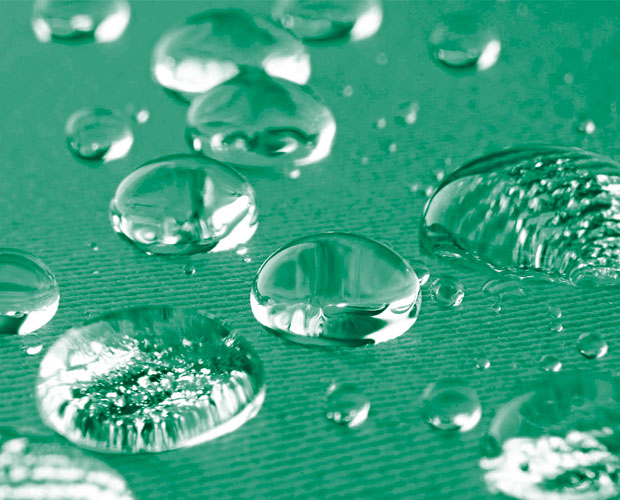EU project ZeroF aims to create substitutes for PFAS in food packaging and textiles


They protect pizza boxes against grease penetration, make outdoor clothing weatherproof, and are also found in groundwater and in the human body: perfluoroalkyl substances, or PFASs for short. Some representatives of this large group of chemicals are now classified as hazardous to health or even carcinogenic. The European Union now wants to ban a number of critical PFAS and is promoting the development of substitute materials for PFAS in four large collaborative projects, such as the EU project ZeroF. In this project, the Fraunhofer Institute for Silicate Research ISC is working with industrial companies and research institutes to develop solutions for PFAS-free food packaging and textiles.
Per- and polyfluoroalkyl substances - PFAS for short - are industrially produced chemicals with an almost unmanageable variety of compositions. They are something like universal talents in chemistry: relatively inexpensive to produce and can be used wherever particularly resistant, smooth, oil- and water-repellent surfaces and solid materials are required. They are resistant to temperature and chemicals, are used as auxiliaries in production and are themselves a component of many products - e.g. in food packaging, cosmetics, pharmaceuticals, crop protection products, textiles, impregnating agents and fire-fighting foams. They enter the environment through wastewater, as abrasion or aerosol, as well as via arable soils into groundwater and the food chain. There they persist - as "eternity chemicals" they cannot be degraded naturally. In the EU, PFASs could be detected in more than 70% of groundwater monitoring wells [1].
The "Nordic Council of Ministers", an association of mainly Scandinavian countries, presented a study on the socio-economic impacts of PFAS in 2019. The study [2] estimates health costs from PFAS-related illnesses alone to be at least 50 billion euros in the EU and puts around 12,000 deaths in the direct link to PFAS.
Ban on critical substances - where to get a substitute?
The ban on particularly critical members of the PFAS family, which is planned by the EU Commission for 2023, is therefore not unexpected. But it also poses considerable difficulties for the industry, because PFASs cannot be replaced so easily due to their property profiles and their range. Exemptions are planned for particularly relevant areas (pharmaceuticals, crop protection), and the usual transition periods also apply. However, the switch to PFAS-free products is necessary for the industry, not least because PFAS producers are already signaling their intention to withdraw completely from the European market in the near future. To advance the environmentally friendly replacement of PFAS, the EU is currently promoting the development of harmless PFAS alternatives in their respective main fields of application in four large collaborative research projects.
ZeroF - environmentally friendly coatings for the packaging and textile industry
One of these four key projects is ZeroF, which focuses on PFAS alternatives for food packaging and textiles. In ZeroF, Fraunhofer ISC is playing a key role in the development of omniphobic (oil- and water-repellent) and abrasion-resistant coatings for textiles. With the substance class of ORMOCER® coatings, Fraunhofer ISC provides a very versatile base material that is to be combined with the cellulose-based materials produced by project partner VTT. "The main challenge for us is to produce a water-repellent coating for textiles that can be applied as a water-based solution at the same time, as this is a requirement of the textile industry," explains Dr. Claudia Stauch, project manager at Fraunhofer ISC. "The ORMOCER® as a hybrid material allows us to combine inorganic and organic material properties and thus generate an infinite number of adjusting screws for this complex issue." The project participants benefit from the fact that ORMOCER® coatings have very good processing, surface and barrier properties, which they have already been able to demonstrate in a number of industrial products.
Support for affected companies
However, the use of the newly developed ZeroF materials does not depend solely on their property profile, but also on their acceptance in the industry. To avert economic damage, companies now using PFAS must not be left alone with the ban and its consequences. "The full functional scope of PFAS is not always really needed. For some of the current fields of application, where only one or two key properties from the entire PFAS spectrum are at stake, there are already good solutions that can be used in the short term," the scientist explains.
Currently, researchers from Fraunhofer ISC are already advising companies to help them quickly implement environmentally friendly and economical PFAS alternatives.
[1] COMMISSION STAFF WORKING DOCUMENT IMPACT ASSESSMENT REPORT, 2022
[2] The cost of inaction - A socioeconomic analysis of environmental and health impacts linked to exposure to PFAS
Last modified:
